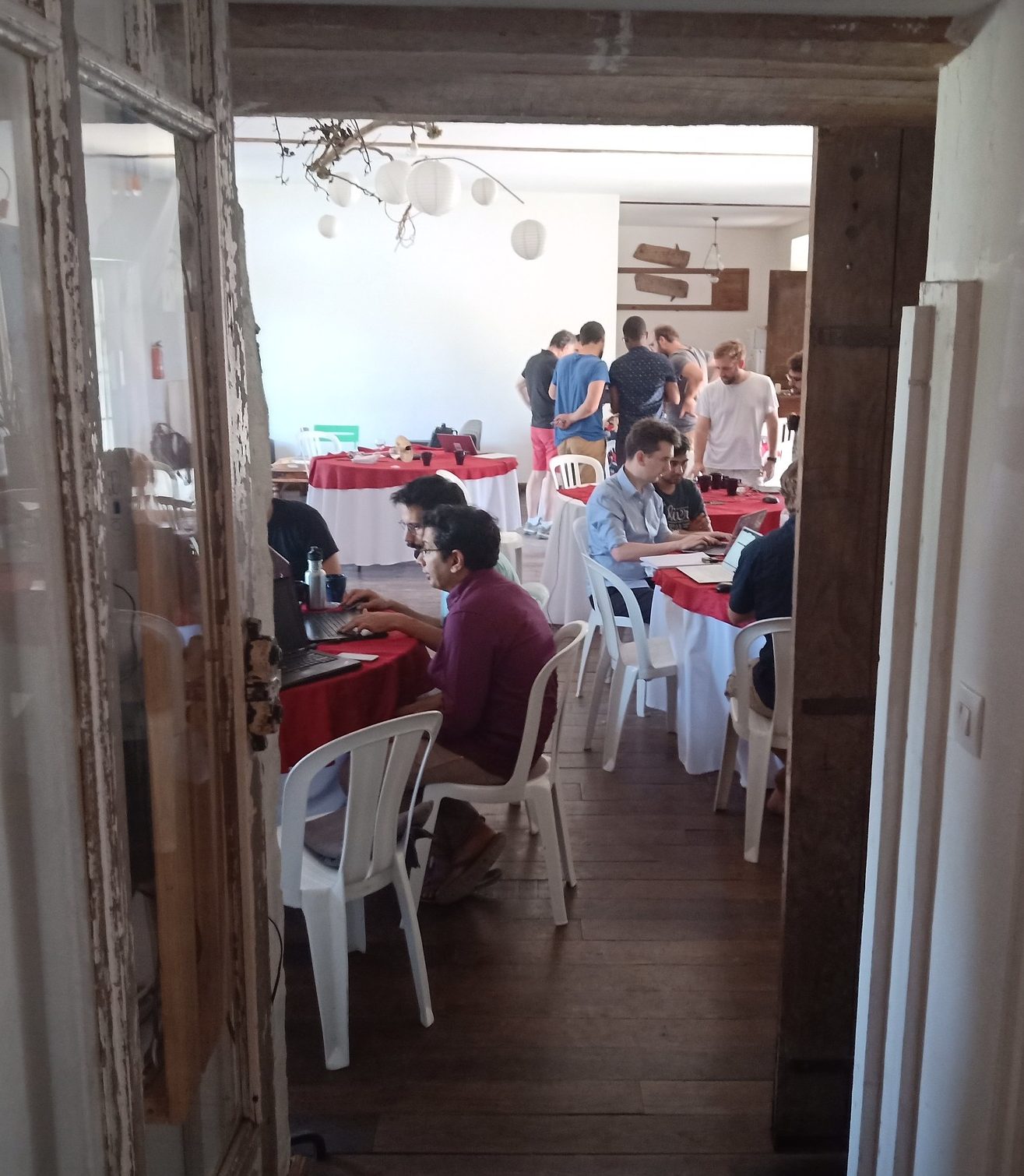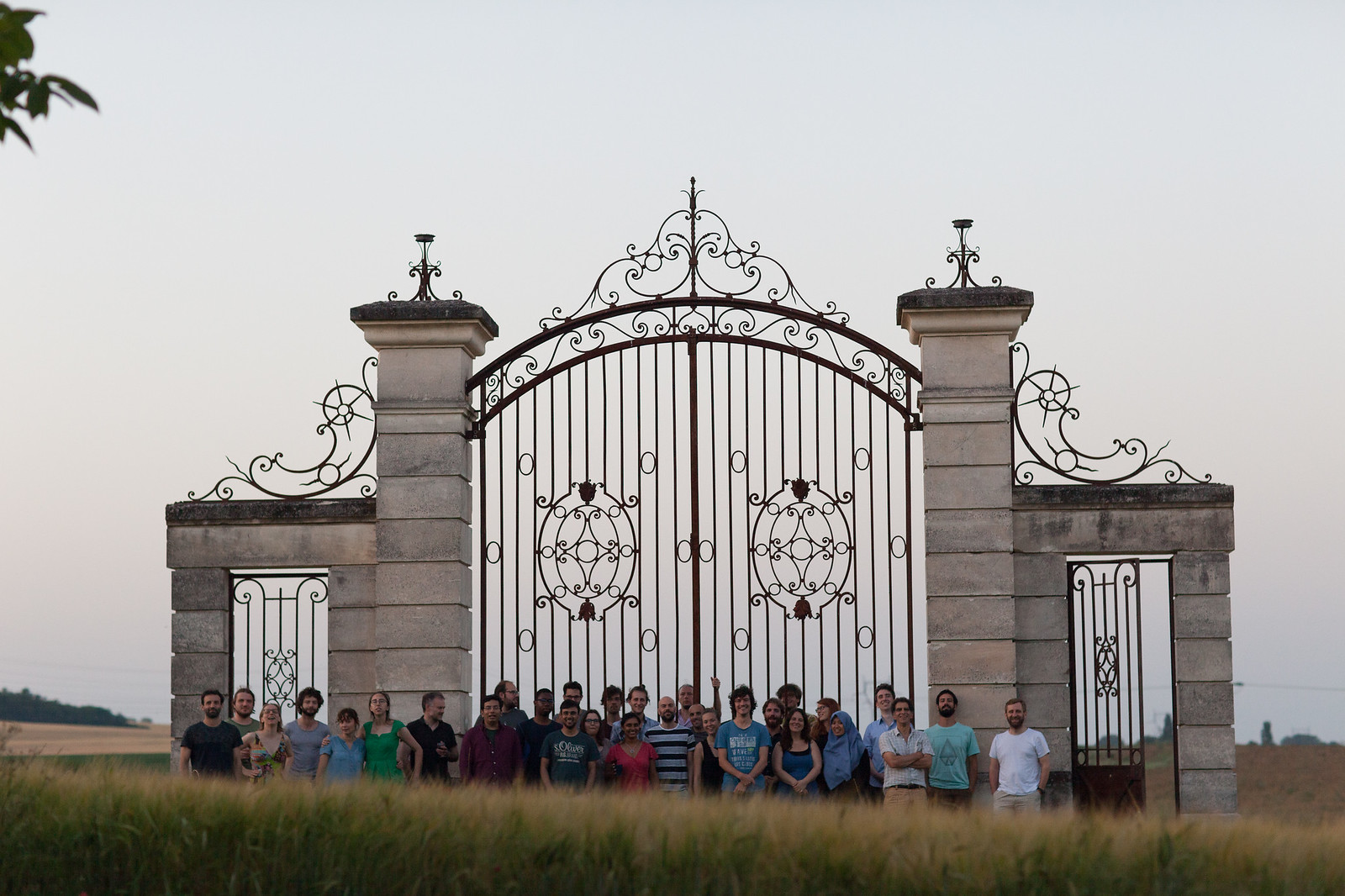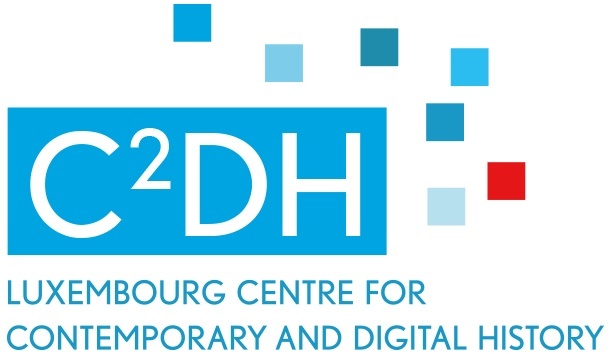In June 2019 I had an opportunity to participate in an interdisciplinary modelling summer-school “eX Modelo” organized by the team developing the model exploration software OpenMole. The event brought together people from diverse backgrounds interested in applying computational modelling to their research. As an advanced workshop it focused on ways to explore simulation models. The main focus was on Agent-Based models (ABM) – a modelling technique that explores complex patterns created by individual behaviours. ABM are especially useful for exploring social processes, for example how individual human residential choices emerge into complex settlement patterns when aggregated over the population.

The summer school started with an introduction to the basics of simulation modelling and introduced tools and programming languages. Next, we learned to explore simulation models through sampling techniques, sensitivity analysis, calibration and optimisation of the models. An overview of techniques included Sobol and Latin Hypercube sampling, ABC (approximate Bayesian computation) and NSGA2 genetic algorithm for calibration and Pattern Space Exploration (PSE) methodology among others.
After three days dedicated to learning the toolkit, teams were formed and we were assigned work challenges. The goal of the challenges was to explore a model, ask specific questions and solve them. The model the students were practicing on was an ABM simulation of a zombie attack in an urban setting. The goal was to explore how different individual behaviours of people lead to different results of the attack and in what ways it would be possible to influence the results.
The courses provided plenty of information about ongoing research on modelling and toolkits for experimenting with them, but even more importantly a common knowledge base to work from. The toolkit and interesting problem to solve, in combination with a great environment and organically formed fun social exchange quickly gave rise to the “thinkering spirit”. Thinkering has been explored in the C2DH as a as one of the central approaches to the advancement of digital humanities. It refers to the playful application of methods from mostly computer science for exploring and presenting historical questions. Intuitively a model as a representation of a system is an ideal medium for interdisciplinary thinkering, especially when it can be expressed in a formal language.
The eX Modelo summer school provided the perfect experience on how models can aid an interdisciplinary exchange in a creative and playful way. People from various backgrounds ranging from archaeology, social sciences, geography, and ecology to computer science could easily explain their research questions in an understandable way. As an often unexpected side-effect, the summer school also provided insights into how other disciplines works leaving others sometimes puzzled, sometimes eager to experiment.
For me personally the more creative the event, the more enjoyable it is. As is often the case with eX Modelo being the first event of its kind, the organisers needed to thinker too. Fortunately, the students were able to surprise the organisers as well, which set an easy mood with a strong motivation of exploring the unexplored territories. I would like to thank eX Modelo team for the event!



